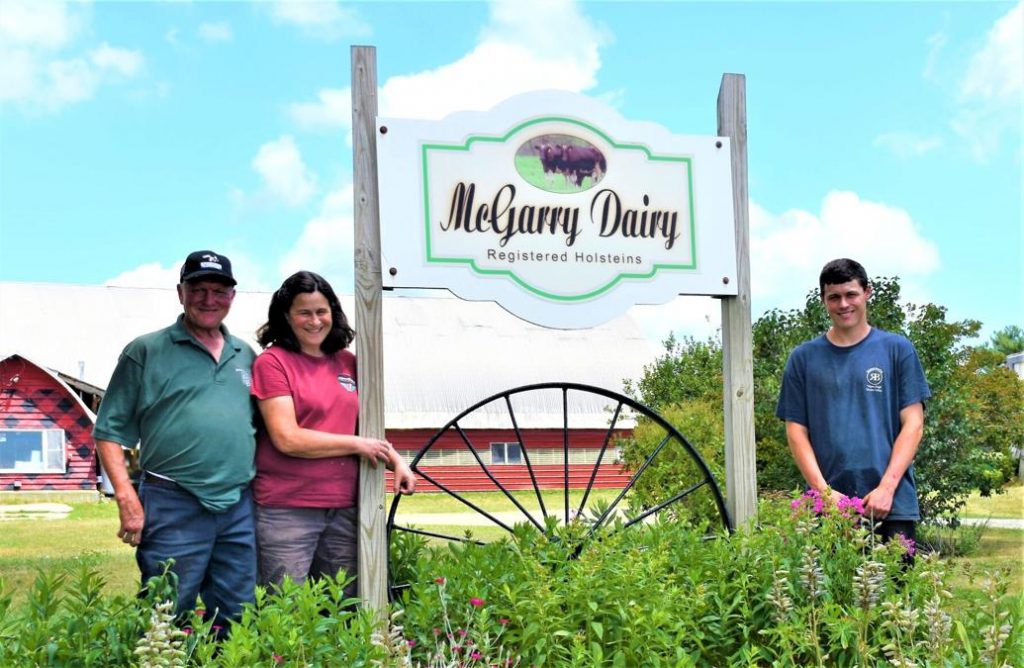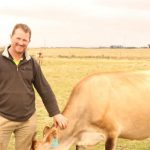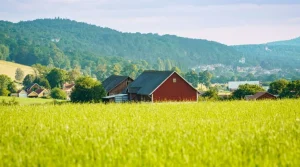
Ed and Diane McGarry operate the farm in partnership with their son, Brian. They started farming at their present location in 1993 but purchased a second nearby farm in 2018 as they needed more cropland. They rent out the six-bedroom 1860 farmhouse on the latter property as an Airbnb.
The farmers currently milk 100 cows twice a day in a double-four herringbone milking parlor, shipping their milk to Agri-Mark/Cabot Creamery. Their average daily milk production is 79 pounds per cow with 4.1 percent butterfat and 3.1 percent protein. Their somatic cell count is consistently under 100,000.
These numbers can be attributed to overall excellent herd management, selective breeding through artificial insemination and careful attention to herd health and cow comfort.
Cows are housed in a freestall barn lined with rubber floor mats with foam underneath and bedding with separated solids. The younger animals are on sawdust with bedded pack in the maternity area.
The McGarrys raise all their own replacements, breeding their heifers to produce their first calf at around 22-24 months. They breed for longevity, high fat and protein content, good foot and leg conformation and DPR (daughter pregnancy rate), striving for a calving interval of 13.4 months.
They have 430 acres of owned and rented land, including 200 acres of grass and 35 acres of pasture. They put their lower-producing cows on pasture until June, using rotational grazing for their dry and bred heifers, which helps reduce feeding costs.
Through good crop management practices that include regular soil testing, crop rotation and a well-managed manure program, they are able to grow almost all of their feed although buy 3,500 square bales of first- and second-cut hay for the younger cows.
They hire a custom operator for their crops, getting four cuttings of hay each year, yielding about 11-12 tons of haylage per acre and four tons of dry matter. For their no-till corn, the yield is 18-20 tons of silage per acre. Because the farm is located in a colder pocket of the state with a shorter growing season, they grow an 83- or 85-day, drought-tolerant corn variety, going for maximum starch.
The McGarrys were among the first dairy producers in Vermont to experiment with Agolin, a plant-based feed additive, in their cows’ diet to increase the butterfat and protein content of milk while helping to reduce methane emissions. The soft study was supported by Barry Callebaut, an environmentally conscious company in St. Albans that manufactures high-quality chocolate and cocoa products.
University of Vermont Extension and the Vermont Dairy Industry Association, in cooperation with the New England Green Pastures Program, present the Vermont Dairy Farm of the Year award annually to an outstanding dairy farm. Other finalists were the Corse Farm Dairy, Whitingham; Knoxland Farms, Bradford and Wells River; and R & N Thibault Farm, Colchester.

























